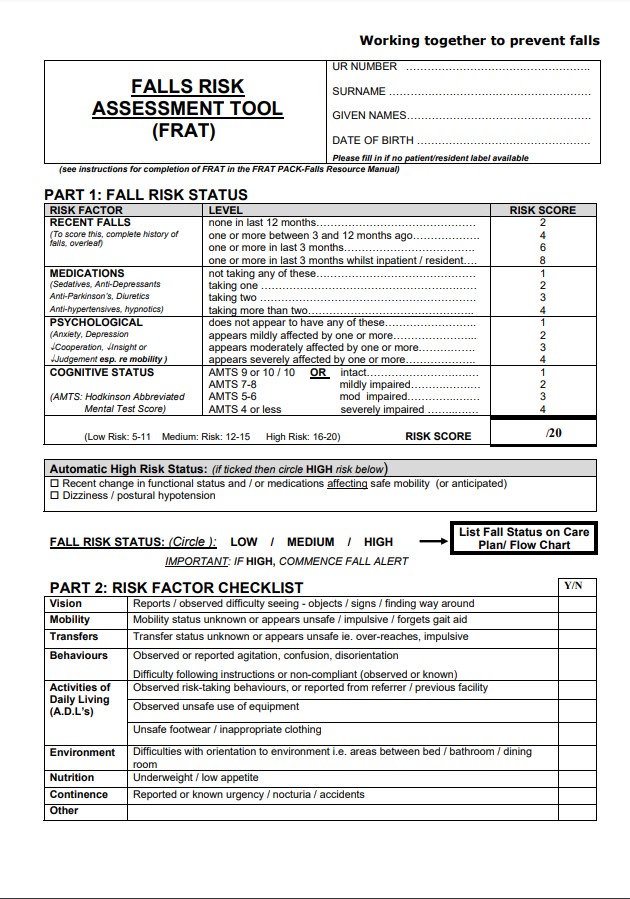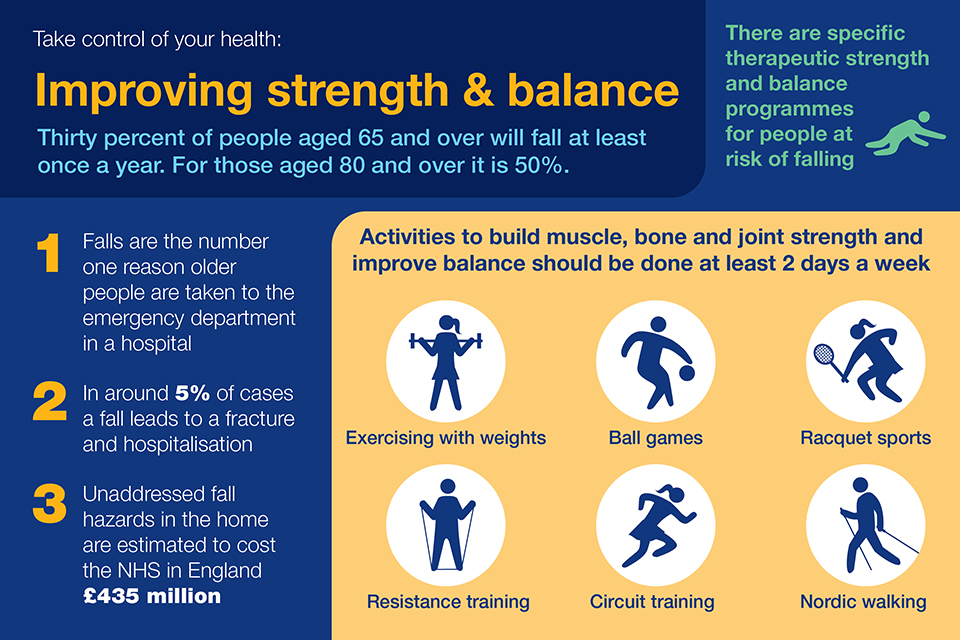Dementia Fall Risk Fundamentals Explained
Dementia Fall Risk Fundamentals Explained
Blog Article
How Dementia Fall Risk can Save You Time, Stress, and Money.
Table of ContentsDementia Fall Risk - QuestionsHow Dementia Fall Risk can Save You Time, Stress, and Money.5 Easy Facts About Dementia Fall Risk ShownFacts About Dementia Fall Risk RevealedDementia Fall Risk for Beginners
Evaluating fall threat assists the whole health care team establish a much safer environment for every client. Ensure that there is a marked location in your medical charting system where personnel can document/reference scores and record pertinent notes related to drop prevention. The Johns Hopkins Loss Threat Analysis Tool is one of many devices your staff can use to help stop negative medical occasions.Individual drops in health centers are typical and incapacitating unfavorable occasions that continue in spite of decades of effort to decrease them. Improving interaction across the assessing registered nurse, treatment group, patient, and patient's most entailed loved ones might reinforce autumn prevention efforts. A team at Brigham and Female's Hospital in Boston, Massachusetts, looked for to develop a standardized fall avoidance program that focused around boosted communication and client and family members involvement.

The technology team emphasized that successful implementation relies on client and staff buy-in, combination of the program right into existing workflows, and fidelity to program processes. The team noted that they are facing how to guarantee connection in program execution during periods of crisis. During the COVID-19 pandemic, for example, a rise in inpatient falls was connected with restrictions in client involvement in addition to restrictions on visitation.
Facts About Dementia Fall Risk Revealed
These occurrences are generally thought about avoidable. To implement the intervention, companies require the following: Accessibility to Fall suggestions sources Fall ideas training and re-training for nursing and non-nursing staff, including brand-new registered nurses Nursing operations that permit for patient and family members interaction to carry out the falls analysis, ensure use of the avoidance strategy, and conduct patient-level audits.
The results can be highly detrimental, often speeding up individual decline and causing longer health center stays. One research study approximated remains enhanced an added 12 in-patient days after a client autumn. The Fall TIPS Program is based upon interesting individuals and their family/loved ones throughout 3 main procedures: assessment, individualized preventative treatments, and bookkeeping to guarantee that patients are taken part in the three-step fall avoidance procedure.
The client evaluation is based on the Morse Autumn Range, which is a validated fall threat evaluation device for in-patient medical facility settings. The scale includes the 6 most common factors clients in health centers fall: the individual autumn history, risky conditions (consisting of polypharmacy), use IVs and various other outside gadgets, mental status, gait, and flexibility.
Each risk aspect relate to several actionable evidence-based interventions. The nurse develops a strategy that integrates the treatments and is noticeable to the care team, person, and family on a laminated poster or published visual help. Registered nurses create the strategy while meeting the client and the person's family members.
Rumored Buzz on Dementia Fall Risk
The poster offers as a communication device with other participants of the person's care team. Dementia Fall Risk. The audit component of the program consists of examining the person's understanding of their threat aspects and prevention plan at the unit you can look here and medical facility levels. Nurse champions carry out at the very least 5 private meetings a month with patients and their households to check for understanding of the fall avoidance strategy

An estimated 30% of these falls lead to injuries, which can range in extent. Unlike various other damaging events that call for a standardized scientific action, autumn prevention depends highly on the demands of the individual. Including the input of individuals who know the client ideal enables for greater customization. This strategy has confirmed to be extra efficient than fall prevention programs that are based largely on the production of a threat score and/or are not customizable.
Dementia Fall Risk Things To Know Before You Get This

Based upon auditing outcomes, one website had 86% compliance and two sites had over 95% conformity. A cost-benefit evaluation of the Loss ideas program in 8 healthcare facilities estimated that the program cost $0.88 per client to implement and led to cost savings of $8,500 per 1000 patient-days in direct costs connected to the avoidance of 567 drops over 3 years and eight months.
According to the advancement group, companies thinking about implementing the program ought to conduct a readiness analysis and falls avoidance voids evaluation. 8 Additionally, organizations must ensure the essential facilities and operations for execution and create an implementation strategy. If one exists, the organization's Loss Avoidance Task Pressure need to be associated with planning.
The Facts About Dementia Fall Risk Revealed
To begin, companies must ensure completion of training components by registered nurses and nursing aides - Dementia Fall Risk. Health center team need to evaluate, based upon the needs of a medical facility, whether image source to make use of a digital health and wellness record printout or paper variation of the fall prevention plan. Executing groups should hire and train registered nurse champs and establish processes for auditing and coverage on loss data
Team require to be involved in the procedure of redesigning the workflow to engage patients explanation and family in the assessment and prevention plan procedure. Systems must be in place to make sure that units can recognize why a loss occurred and remediate the cause. More particularly, nurses must have networks to offer ongoing comments to both team and unit management so they can readjust and improve fall avoidance operations and connect systemic troubles.
Report this page